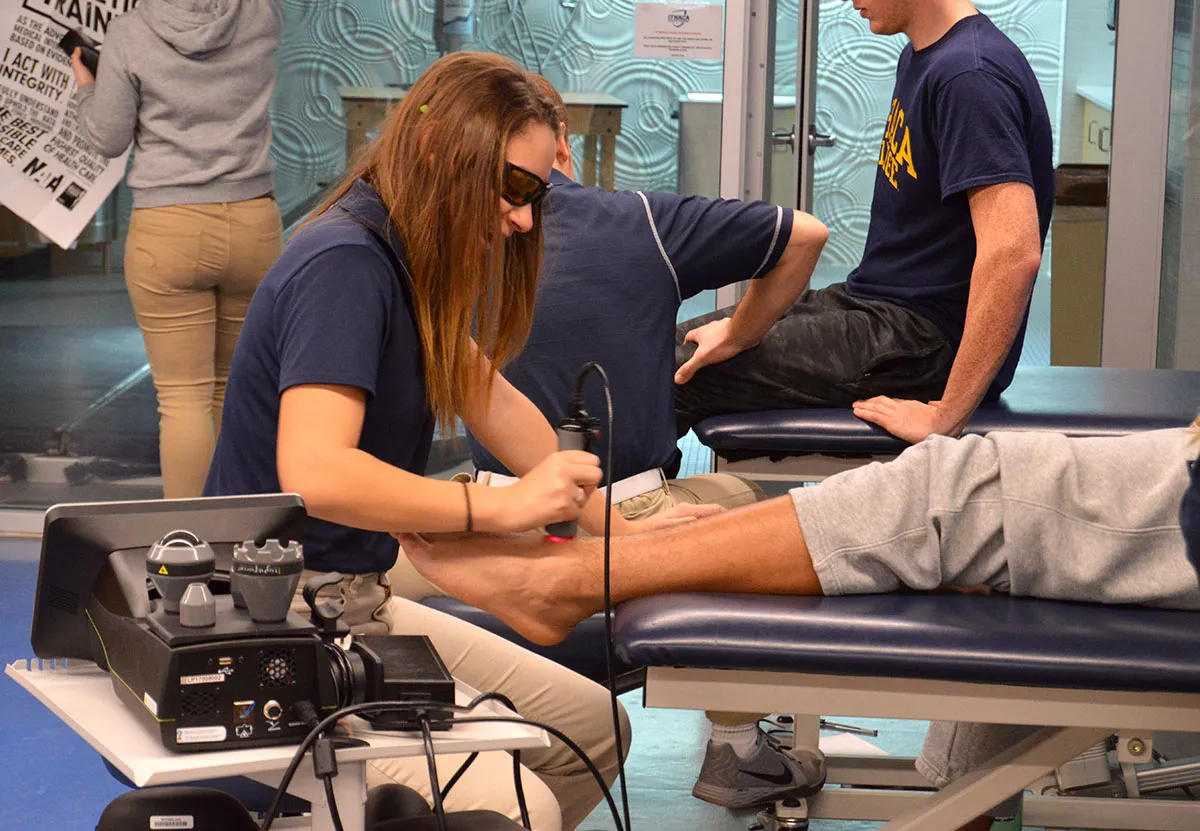In the fall of 2021 Ithaca College will begin a dual degree Master's in Athletic Training program that will allow students to graduate with a master’s degree in five years instead six.
The five-year program — which also includes a summer session — will consist of three years of pre-professional courses, followed by two years of professional, graduate-level coursework.
“When the new Commission on Accreditation of Athletic Training Education (CAATE) standards came out, making a master's degree a requirement for students who wanted to enter the profession, we had two options,” said Paul Geisler, professor and director of the athletic training education program. “The first was to create a two-year, standalone graduate program, which is what a majority of schools have chosen to do. The second was to create a 3:2 program.”
As Geisler points out, the main advantage of a 3:2 program from a student perspective is that it confers the now-required master's degree in five years, rather than six.
“This saves the students entering our program in the fall of 2021 a year of college, and gets them into the workforce sooner, and that’s going to be an advantage in the eyes of students,” he said.
